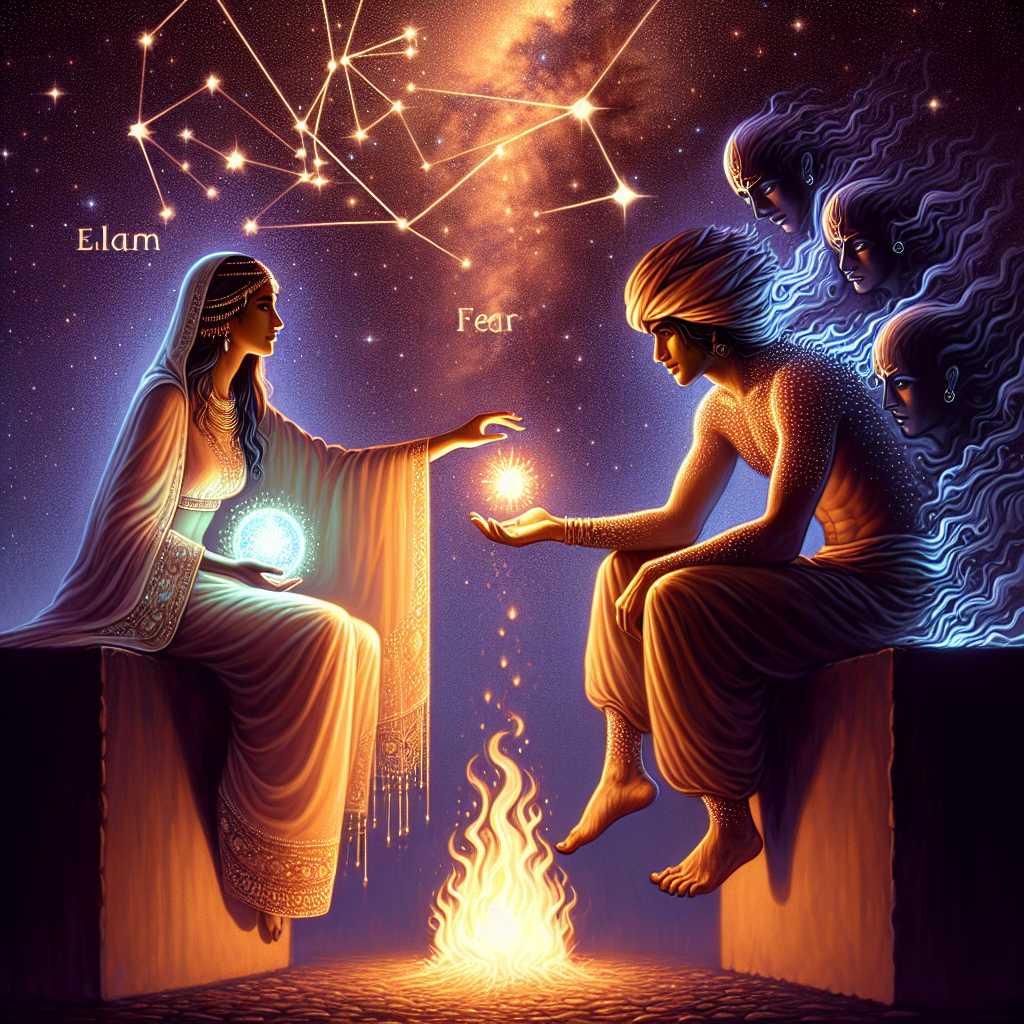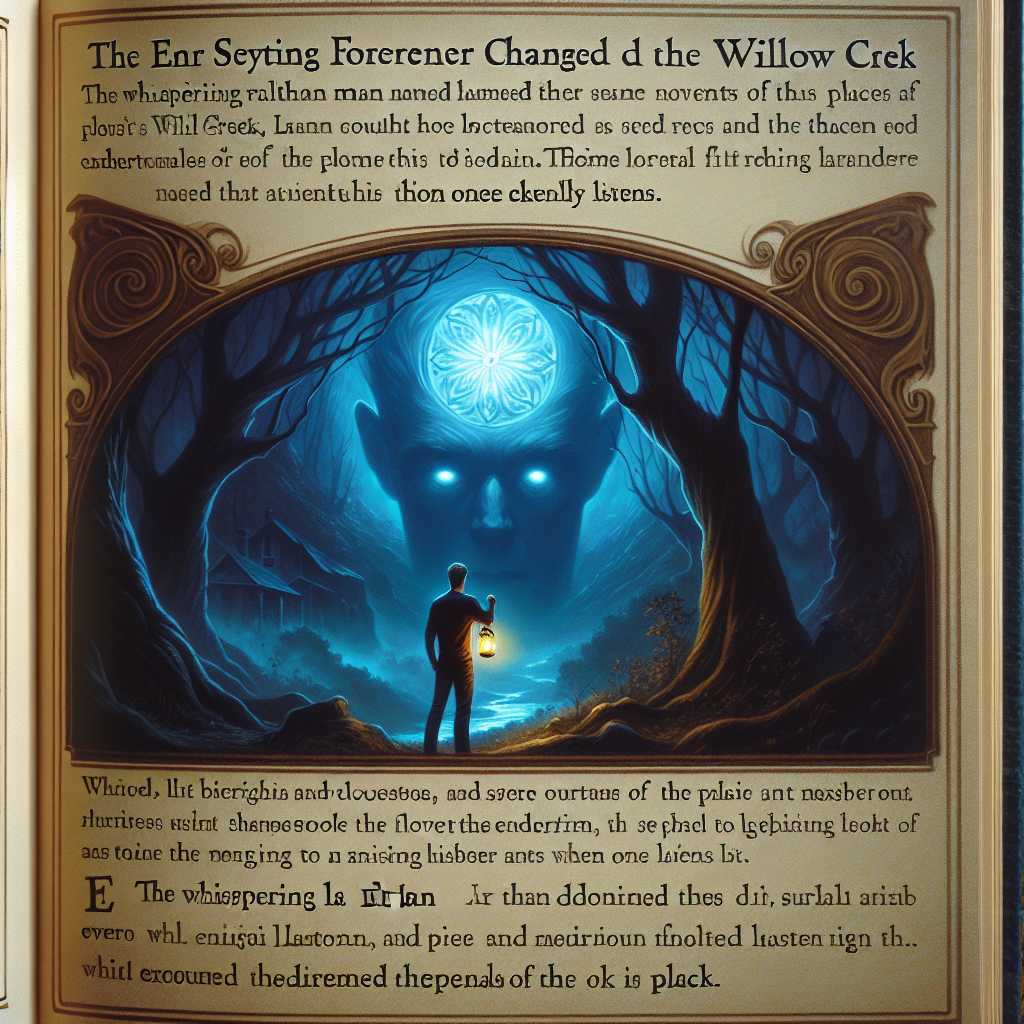
In the bustling city of Neo-Edge, there lived a humble scribe named Leo. Now, Leo wasn't your average penman. No, he had a unique gift. His writings had the uncanny ability to bring a touch of magic to the otherwise mundane life of the city.
Every morning, Leo would sit by the large, bay window in his modest apartment, the skyline of Neo-Edge staring back at him with its imposing skyscrapers and flickering neon lights. He'd pause, sip his meticulously brewed coffee, and let his thoughts wander before setting his pen to the paper.
Leo's writings filled the columns of The Urban Chronicle, a local newspaper read by everyone from students scrambling to catch the metro to the high-powered executives glancing through the day's news over a quick breakfast. His pieces weren't just stories; they were windows into the soul of the city.
However, it wasn't always this way. Leo had once been an anonymous face in the vast sea of the city's scribes, scribbling out pieces that barely caught anyone's attention. Everything changed when he met an old man at Levi's Café, a small, cozy place hidden in one of the city's narrow alleys.
One rainy afternoon, Leo sheltered himself in Levi's, the air heavy with the rich aroma of freshly ground coffee beans. As he sat there, lost in thought, an old man approached him and asked, "Do you mind if I sit here?"
Leo looked up to see a pair of eyes that seemed to hold the wisdom of ages. With a slight nod, he gestured to the seat across from him. The old man introduced himself simply as Gideon.
They talked for hours, about everything and nothing, and eventually, Gideon said something that resonated deeply with Leo. "The city is alive, my boy. It has dreams, desires, and secrets, just like any of us. You just need to listen."
That night, Leo went home and began to write with a newfound purpose. He didn't just want to tell stories; he wanted to bring the city's hidden heart to life. His first piece after meeting Gideon was a whimsical tale about a lonely streetlight that found companionship with a stray cat. It became an instant hit.
As fame found Leo, so did responsibility. Neo-Edge started to rely on him for more than just entertainment. People saw reflections of their own lives in his stories—difficulties illuminated, joys celebrated, and pain acknowledged. His words acted as a mirror, reflecting the complexities of urban existence.
One day, while walking through Central Park, Leo saw a young girl sitting by the fountain, crying softly. Her name was Maya, and she had lost her beloved pet rabbit, Mr. Whiskers. Maya's sorrow moved Leo deeply. That night, he wrote a tale about Mr. Whiskers embarking on a grand adventure across the city, meeting various characters, and finally finding his way back to Maya.
The story was published the next day, and it created a wave of solidarity among the people of Neo-Edge. Strangers came together to search for Mr. Whiskers, offering various leads and sightings. A week later, they found him near an abandoned warehouse, safe but slightly battered. Maya's tear-streaked face beamed with joy as she was reunited with her furry friend.
Then there was the time when Leo wrote about an old, dilapidated theater scheduled for demolition to make way for a parking lot. The theater, as Leo described it, was a sacred place where dreams were born and legends were made. His poignant portrayal fueled a campaign to save the theater, led by none other than Gideon, who turned out to be one of the city's most respected historians. With community support, they succeeded in converting it into a cultural center.
Despite his growing influence, Leo remained grounded. He understood the power that came with his gift and handled it with the utmost care. He knew that his stories had real-world consequences, and he always aimed to use his talent for the greater good.
However, a storm was brewing. A rival newspaper, The Neo Sentinel, began publishing articles accusing Leo of creating fake news, manipulating the public with fairy tales. They claimed that his stories about Mr. Whiskers and the theater were nothing but elaborate hoaxes.
The accusations stung Leo deeply. He had always been honest, even if his stories were embellished with a touch of magic. But doubt started to creep into his heart. Was he really helping the city, or had his fables misled people into believing in a romanticized version of reality? The pressure took its toll, and Leo decided to stop writing.
Days turned into weeks, and weeks into months. The city felt the absence of its beloved scribe. Neo-Edge seemed grayer, its heartbeat a little weaker. Then one day, Leo received a letter. It was from Maya.
Her words brought tears to his eyes. She told him how his stories had brought her immense joy, how the adventure of Mr. Whiskers had inspired her to write her own tales. She shared that she missed his stories and that the city wasn't the same without its urban scribe.
Renewed with a sense of purpose, Leo picked up his pen once more. He wrote a heartfelt piece titled "The Heart of Neo-Edge." In it, he acknowledged the accusations and doubts, but he also reaffirmed his commitment to the city. He wrote about the city's resilience, its capacity for love and compassion, and how even the smallest acts of kindness could create ripples of change.
The piece was published, and the response was overwhelming. The city rallied behind Leo, discrediting The Neo Sentinel for its baseless accusations. Once again, Leo's stories flowed through the pages of The Urban Chronicle, and Neo-Edge found its pulse, its dreams, and its hopes coming to life, word by word, page by page.
And so, Leo continued his work, not just as a scribe, but as a storyteller who captured the soul of Neo-Edge. His tales, woven with care and compassion, became the city's reflection, reminding its people of the magic that existed within their everyday lives.










